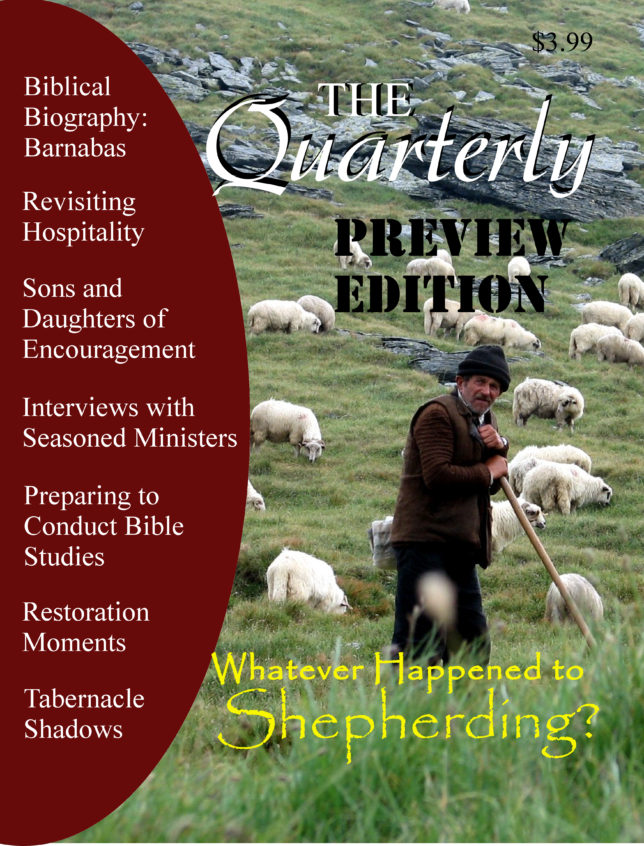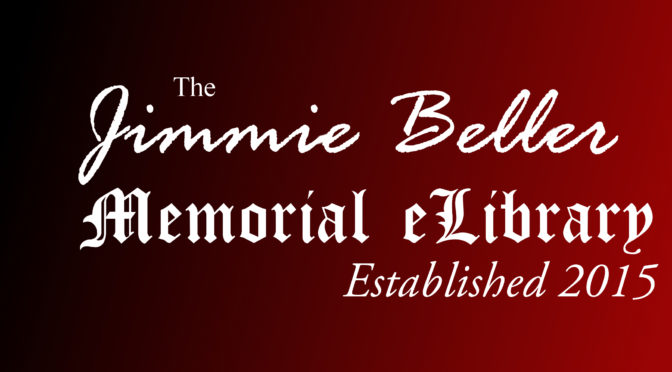We’ve been trying to keep our lips sealed as much as possible, but we’ve finally decided it is time to break the silence.
Over the past couple months (and it is still ongoing), we’ve been working on several projects, and we want to tell you about some of them today!
Bible Broadband
This book, written by our good friend, Stephane (“Stefan”) Maillet, creator of AddedSouls.com, and the “Added to the church of Christ (Acts 2:47)” Facebook page, is a brief collection of tips and tactics for effectively reaching people with the gospel via social media (Facebook, Twitter, Youtube, etc.). Interspersed throughout the 52-page book are actual messages these endeavors have received from people he’s never met in person, showing the impact that one can have for Christ through this medium.

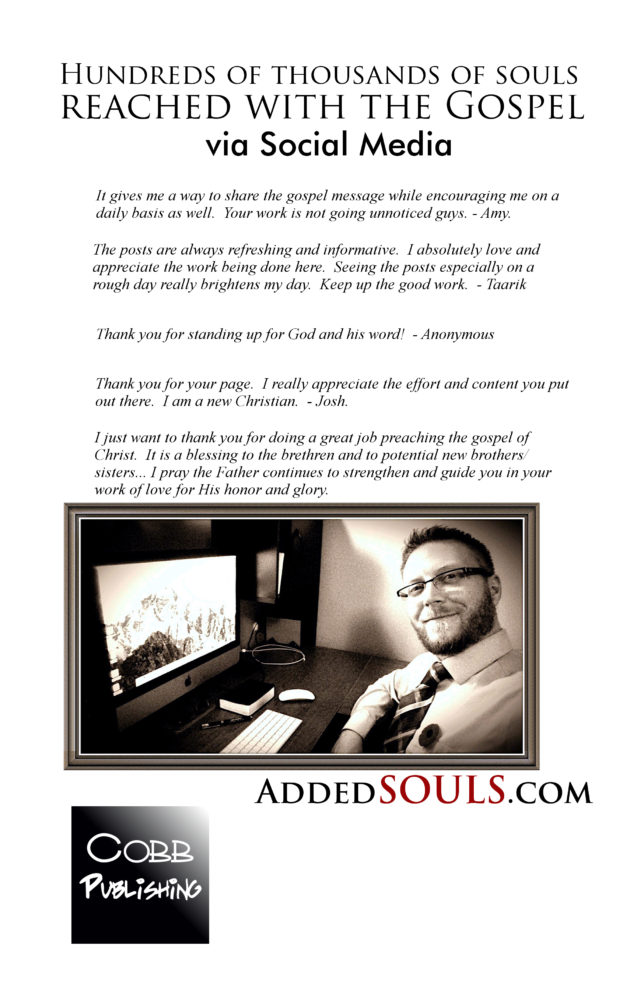
100% of the profits from the sale of this book go to help this worthy and dedicated Canadian preacher in his efforts for Jesus Christ.
Paperback, $6.99
digital, $2.99
Evenings with the Bible
This three-volume collection of in-depth Bible studies, full of practical application and encouragement for a deeper faith in God, Christ, and the Bible, is now available in a brand-new, updated, corrected, and fully-reformatted edition, complete with new explanatory footnotes for any obscure or archaic words.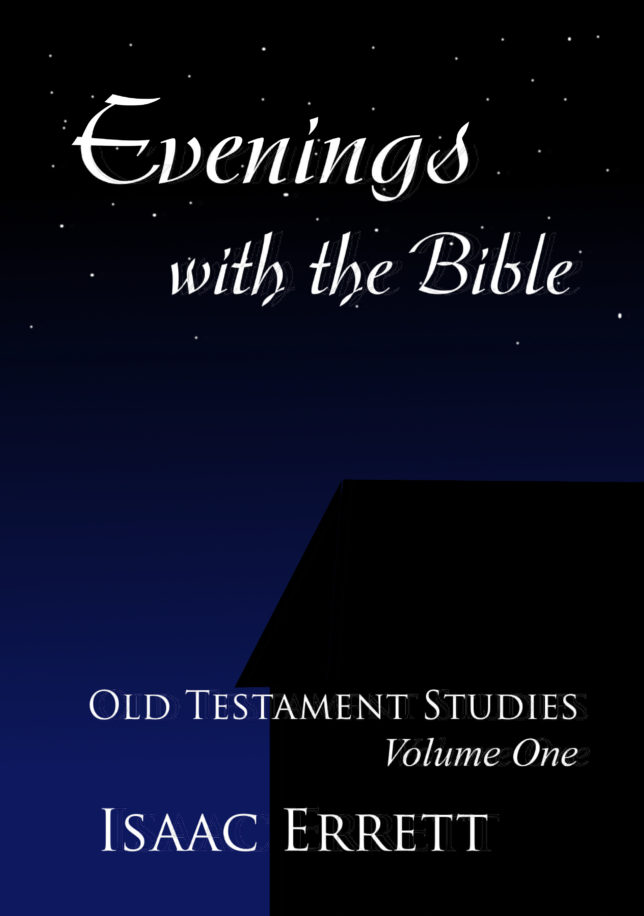
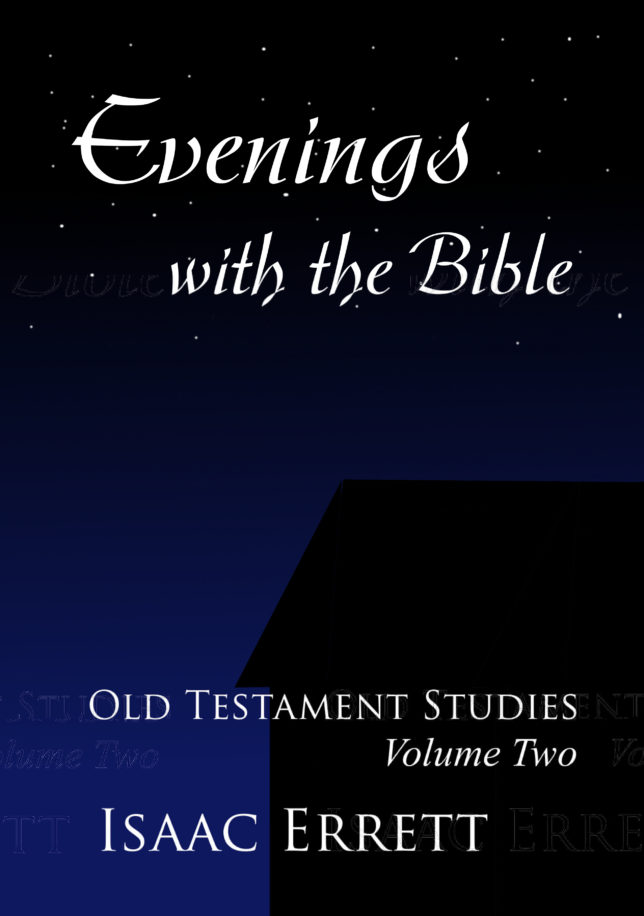
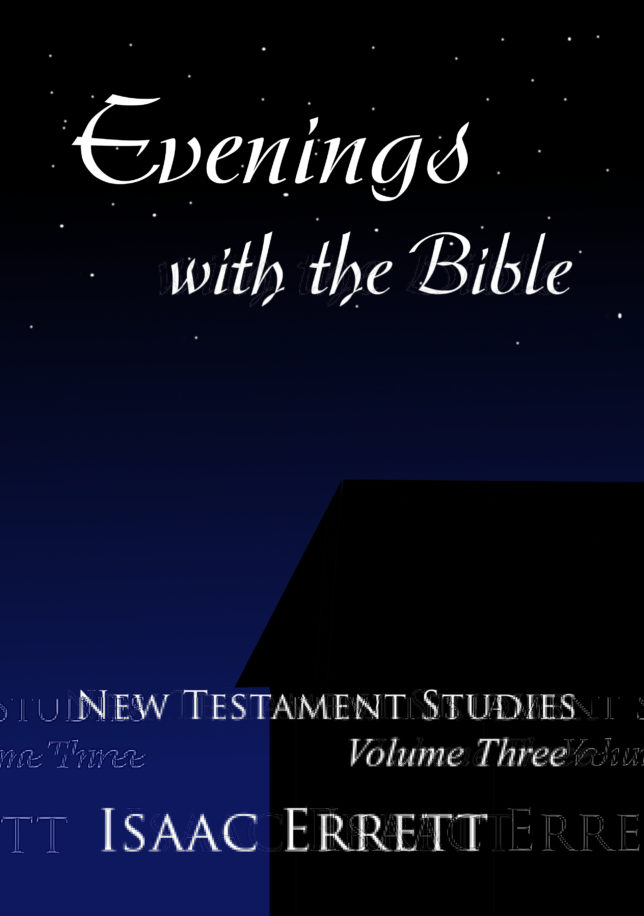
Volume 1: Genesis through Solomon
Volume 2: Rehoboam through Esther
Volume 3: John the Baptist, the early life and ministry of Jesus, and the characteristics of Christianity.
Each book is approximately 280 pages, and will be officially released January 3rd, but we are taking pre-orders now.
3-Volume Set (paperback): $24.00 (Regularly $32.00)
Digital 3-Volume set: $7.00 (Regularly $12.99)
Recollections of Men of Faith
This is a Restoration Movement book unlike any other. Stories, incidents, anecdotes (humorous and not-so-humorous), and reflections on pioneer preachers, written by someone who knew and traveled with them. Why did Alexander Campbell request tobacco before speaking? Why was B.F. Hall afraid of cats in the worship? Why did John T. Johnson tell a group of girls not to be interested in a young preacher who was traveling with him? What caused Jacob Creath to break down in tears in the forest? These and many other interesting tidbits are revealed in this book by W. C. Rogers.
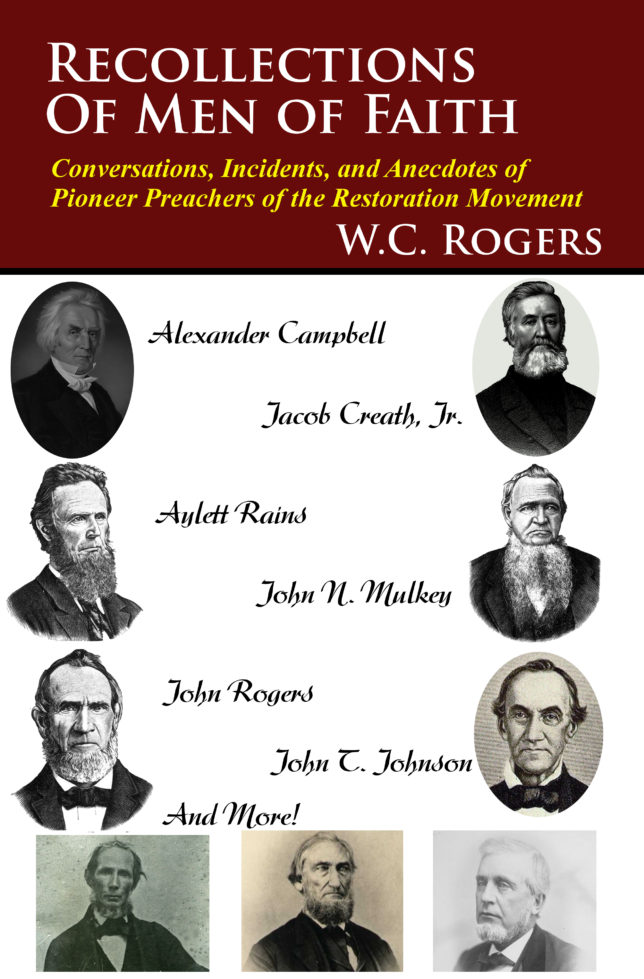
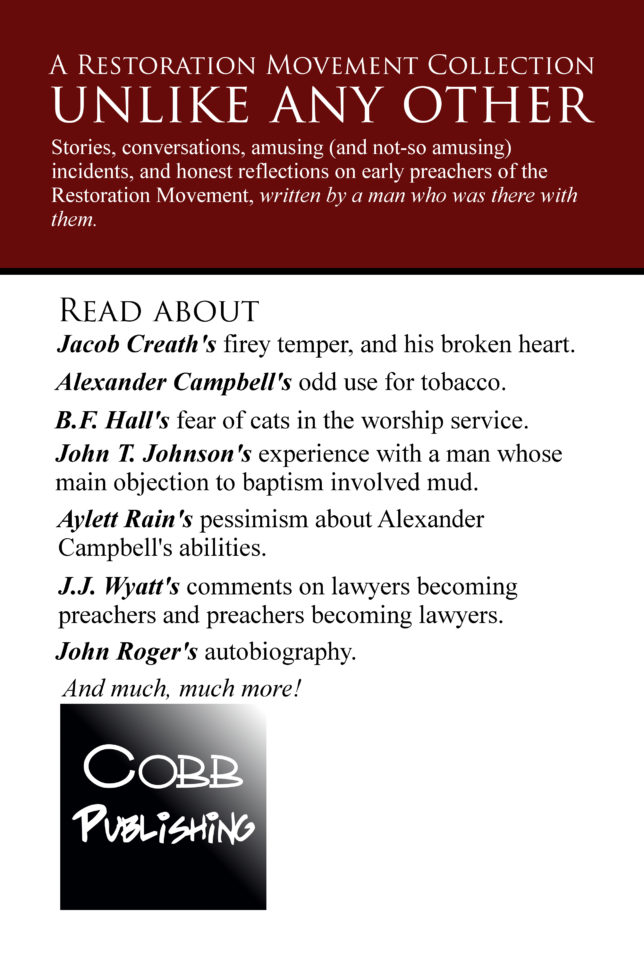
194 pages, completely updated, corrected, reformatted, and includes explanatory footnotes where necessary.
Officially available January 3rd, this book is now available for pre-order.
Paperback: $8.95 (Regularly $10.95)
Digital: $2.99 (Regularly $5.99)
Dawn of the Reformation in Missouri
This book chronicles the rise of the Restoration Movement (which they then called “The Present Reformation”) in the state of Missouri, and gives biographical sketches of several well-known servants of the Lord, but also some others who are not as well-known. In its 36 chapters (not counting the introductory section on the history of Missouri), well over 50 faithful gospel preachers are covered. This book is quite encouraging in showing what men of God went through to bring souls to Jesus Christ, and gives great examples for faithfulness and devotion to God that we would do well to emulate.
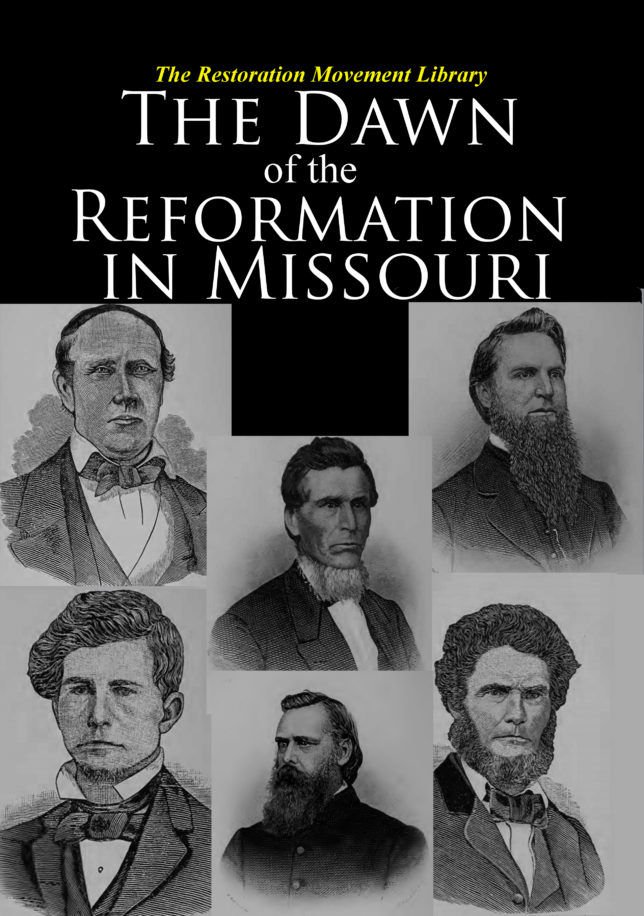
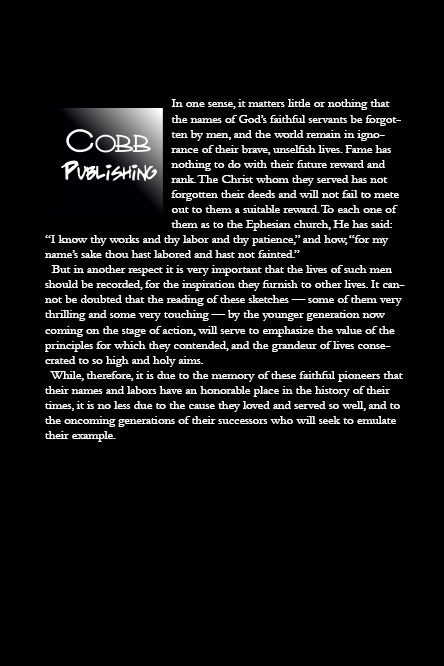
Officially Available January 24th, this 339-page book is also available for pre-order at a discounted price!
Paperback: $9.95 (Regularly $13.99)
Digital: $3.99 (Regularly $5.99)
Other Projects
In addition to these projects above, work is still ongoing on our book, Who Were the Apostles? as well as on our book on Revelation, our Sermon Commentary on Mark, and the first issue of the Quarterly.
That, and about 19 more projects that we hope to have finished and available by the end of January. Look for more announcements in the coming days and weeks.
Thanks for taking the time to read this, and please don’t hesitate to contact us with any questions.
–Bradley S. Cobb




